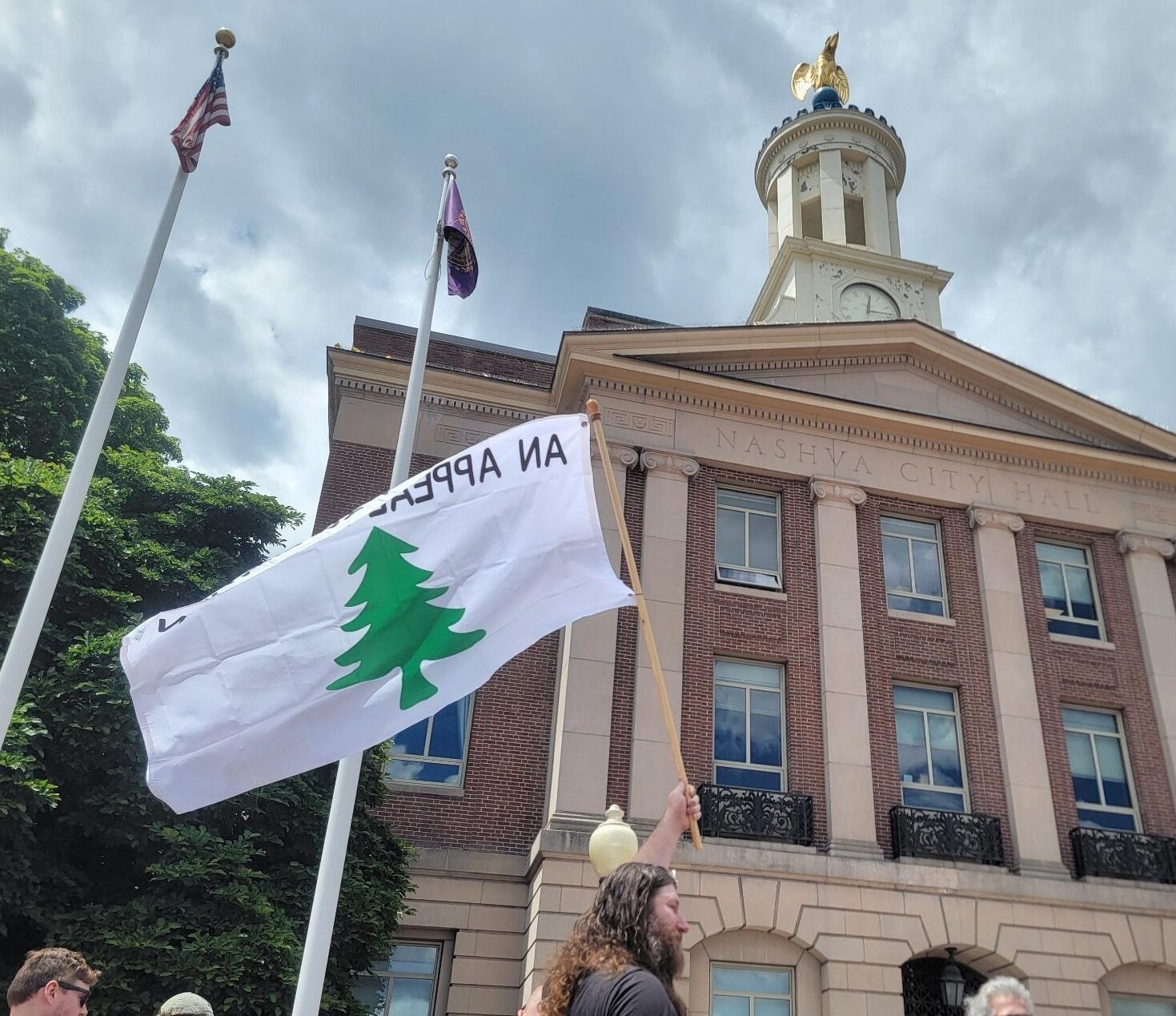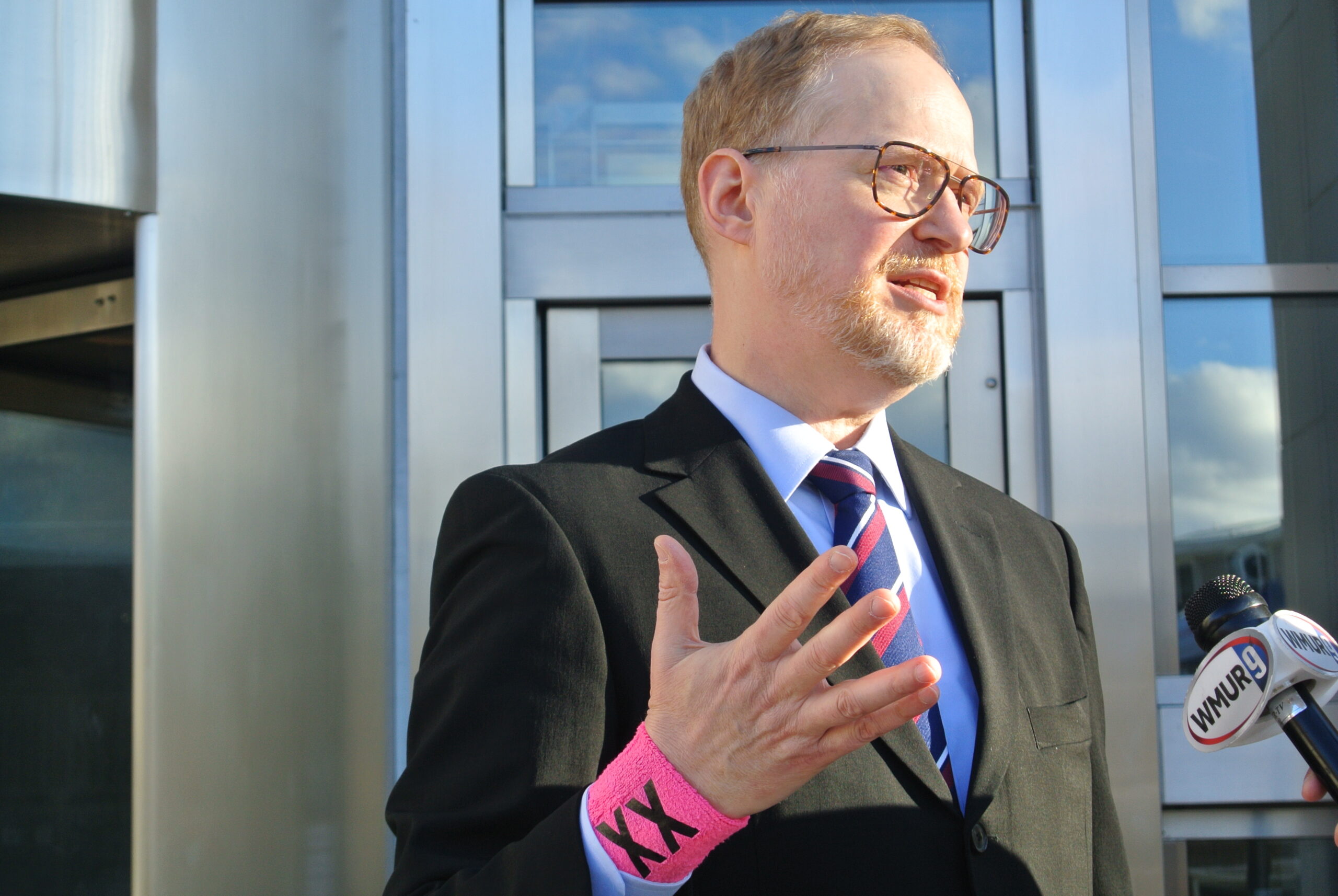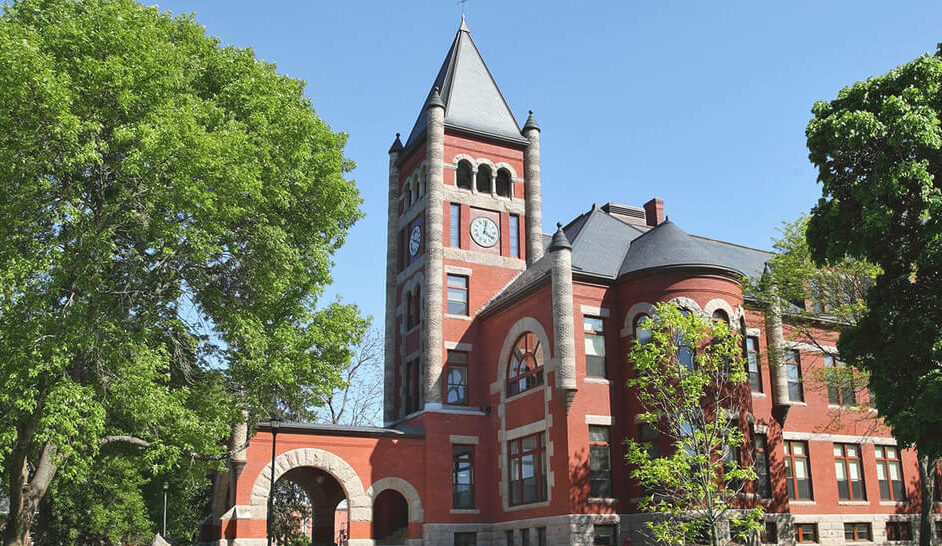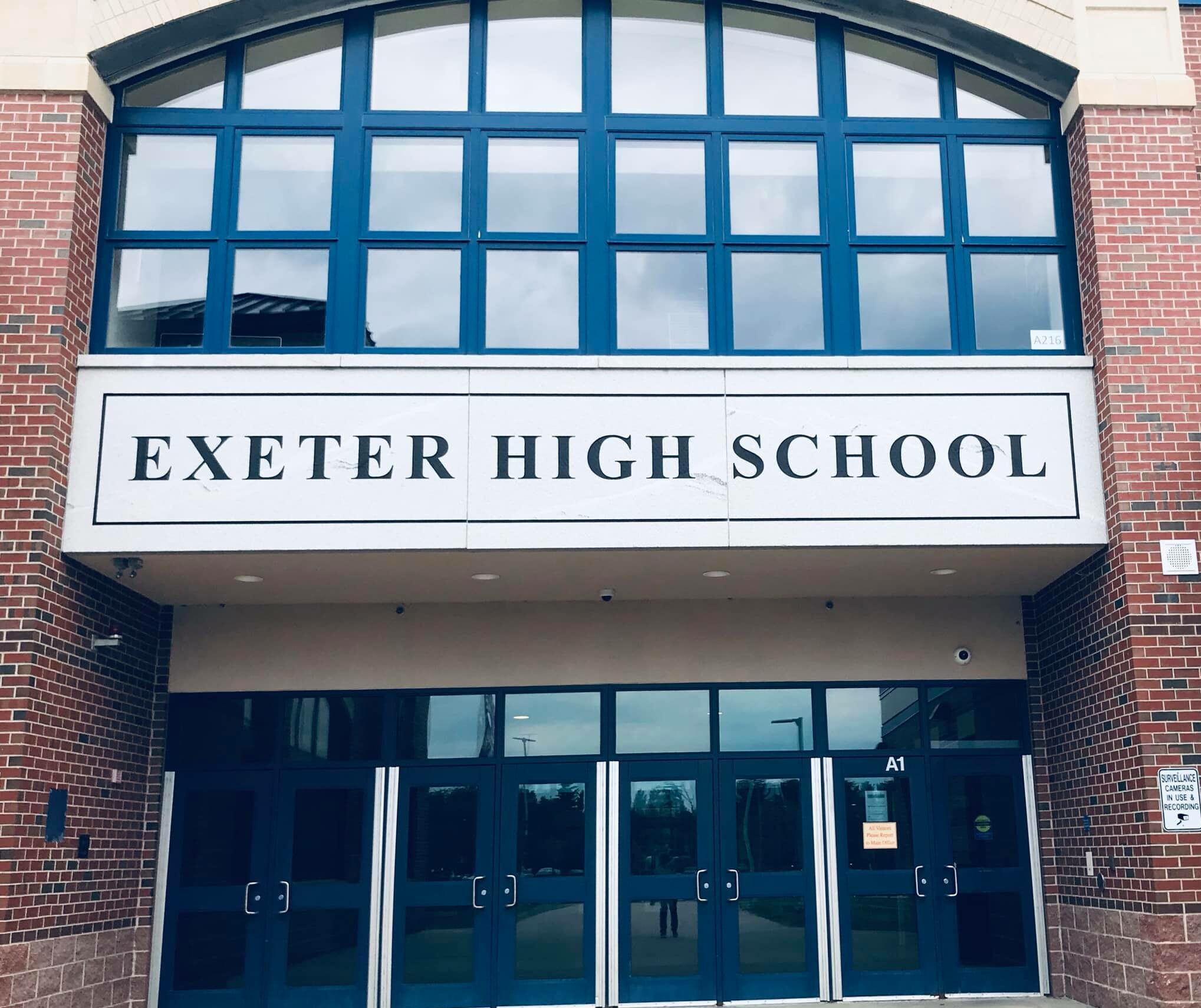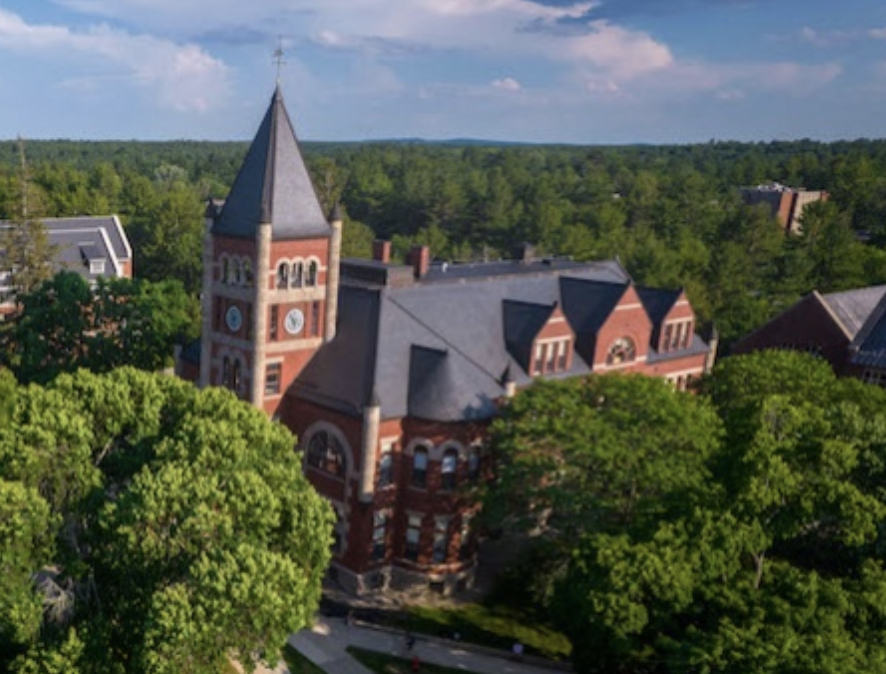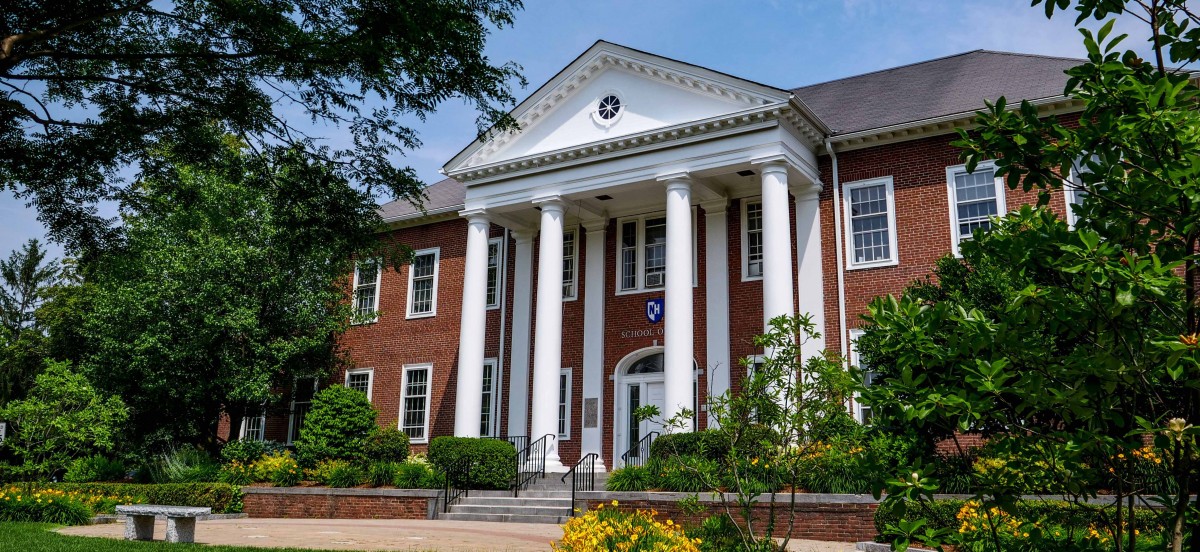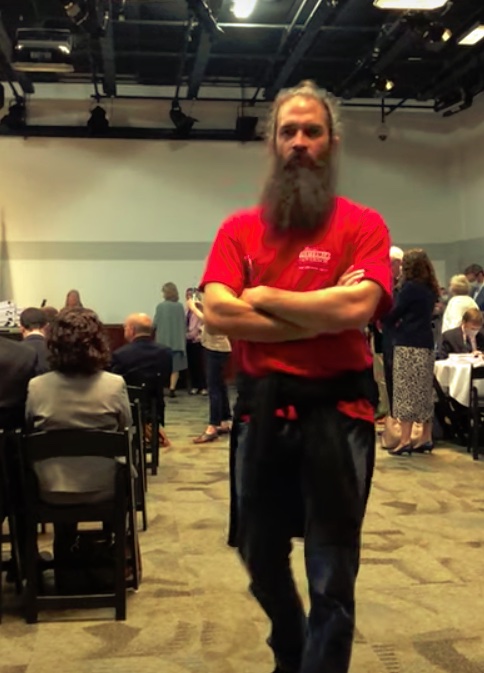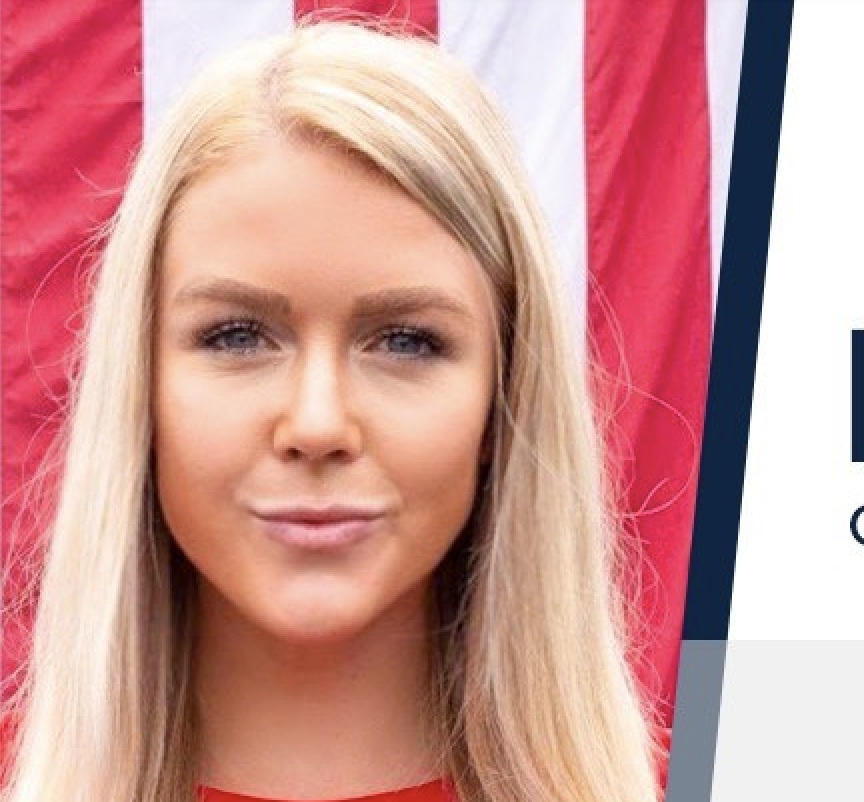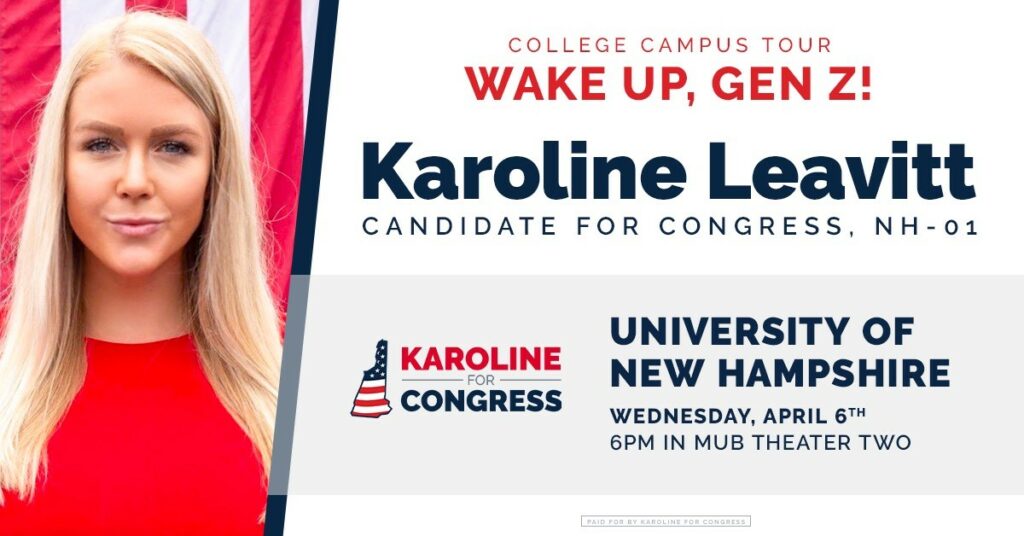Demonic Christmas Display at State House Destroyed
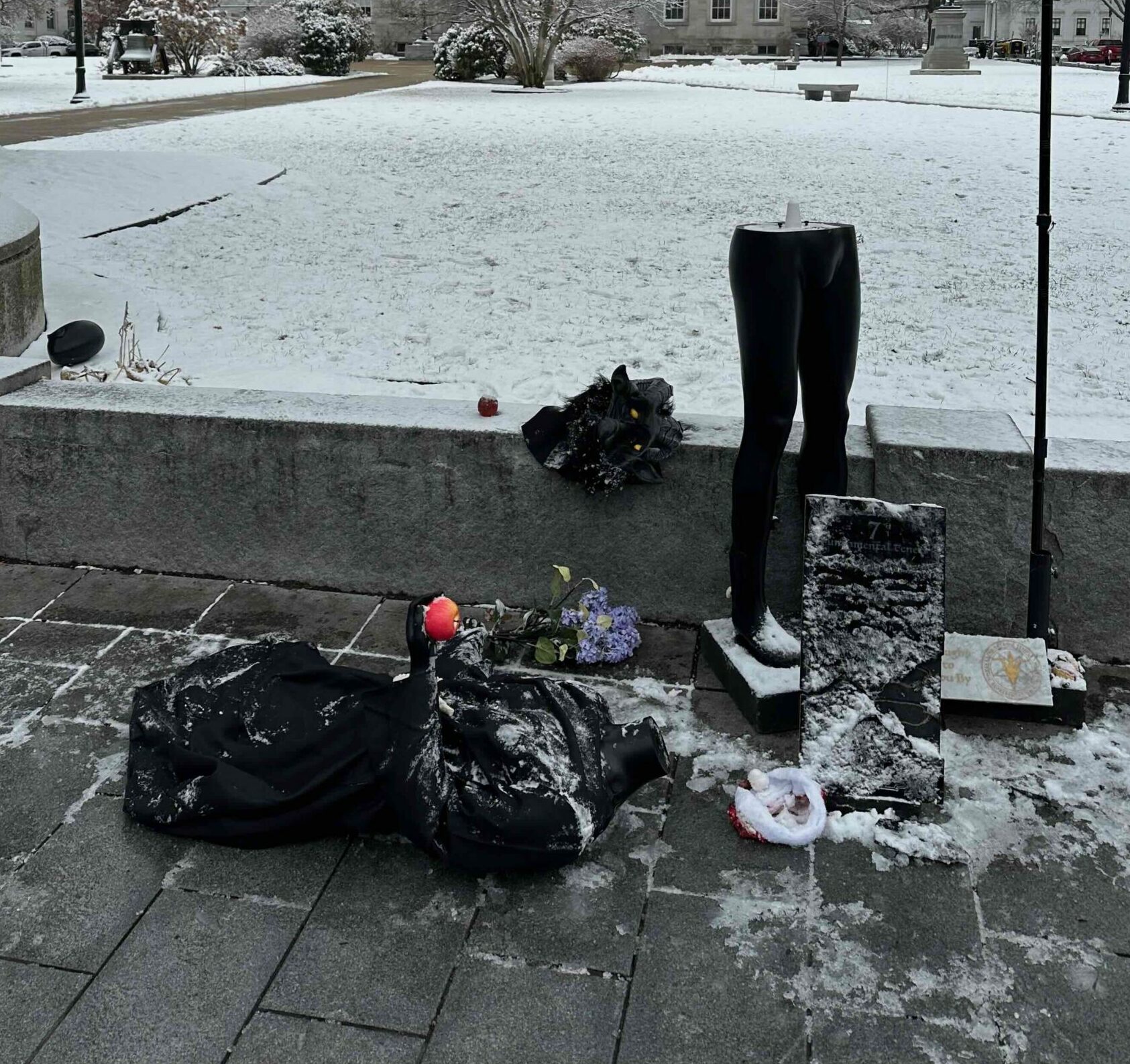
Forget St. Nick; someone in Concord may end up on Satan’s naughty list after The Satanic Temple’s Baphomet statue was destroyed Monday night in an act of yuletide mayhem.
Concord Deputy Police Chief John Thomas told NHJournal that while the investigation into the vandalism is active and ongoing, he can rule out at least one possible suspect.
“Santa wouldn’t do this,” Thomas said. “Santa loves everybody.”
The statue of the hooded demon was found broken in half around 7 p.m. Monday night, a few hours after the marble slab showing The Satanic Temple’s seven principles was cracked.
State Rep. Ellen Read (D-Newmarket), who helped organize The Satanic Temple’s display, was spotted gathering up the broken shards of the goat-headed figure Tuesday morning after getting a call about the destruction. She’s not sure if members of The Satanic Temple plan to put their monster mannequin back together.

Rep. Ellen Read (D-Newmarket) puts Baphomet’s legs in her car.
Representatives of the Vermont and New Hampshire-based temple did not respond to a request for comment.
City officials were not thrilled about the addition to the public space when the Baphomet display went up this weekend on the Concord City Square in front of the State House. The square typically plays host to a traditional nativity scene depicting the birth of Jesus.
A statement issued by the City of Concord indicates the permission for the sulphuric statue’s inclusion came under threat of a lawsuit.
“Under the First Amendment and to avoid litigation, the City needed to choose whether to ban all holiday displays installed by other groups, or otherwise, to allow it,” the statement reads. “After reviewing its legal options, the City ultimately decided to continue the policy of allowing unattended displays at City Plaza during this holiday season and to allow the statue. It is anticipated that the City Council will review next year whether permits for unattended holiday displays should be allowed at City Plaza.”
Cornerstone, a New Hampshire Christian advocacy organization, has mocked the display as a childish and insincere attempt to promote an anti-religious agenda, not an expression of actual spiritual beliefs.
“The Satanic Temple are not Satanists. They have no religious belief in any Satan figure. They are normal, atheist feminists who use Satanic imagery as a legal tactic, to fundraise through media exposure, and because offending Christian grandmothers brings a sense of meaning to their sad lives,” it said in a statement.
Cornerstone acknowledges there are people with pagan or even Satan-centric religious beliefs, but said those behind the State House display aren’t among them.
“If you remember the 1990s, you might have the wrong idea about who put up the ‘Satanic’ statue in Concord, New Hampshire this weekend,” the group posted on social media, “‘The Satanic Temple’ is not Charles Manson: it’s just your liberal feminist aunt trying to trigger you by mocking your faith.”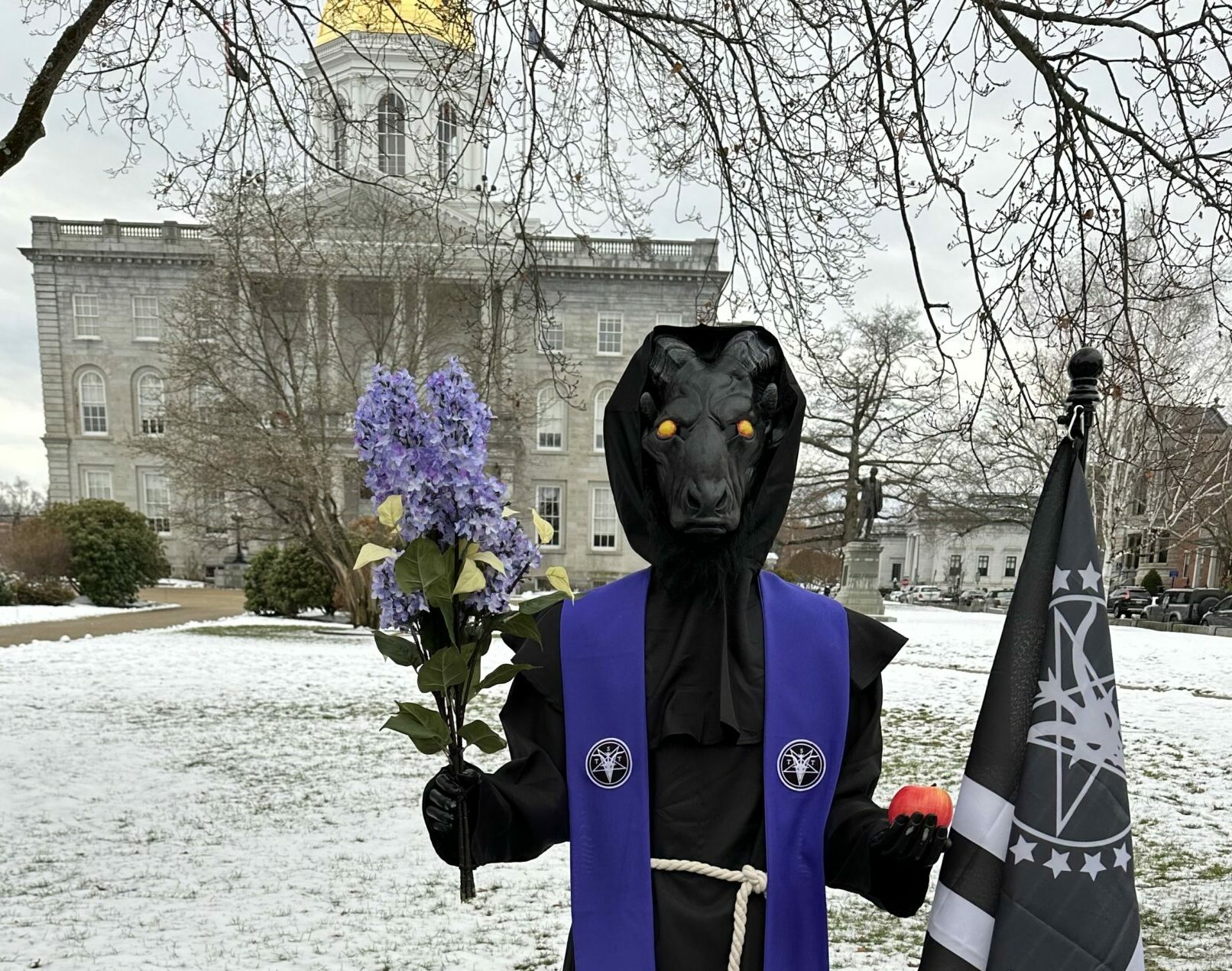
Rep. Joe Sweeney (R-Salem) sent out a fundraising email from the state GOP Committee to Select House Republicans, arguing Republicans can defend against devils real and, like Baphomet, imagined.
“We know this is another step in a growing push to undermine the values that make our state special, and to make you feel offended and turned off from getting involved. From offensive displays to legislation that challenges our way of life, New Hampshire Democrats have aligned themselves with the extremism that threatens Granite Staters’ families and freedoms,” Sweeney wrote.
Members of The Satanic Temple, much like members of the Church of Satan, profess an atheistic creed that uses the dark cloak of Satan to shock mainstream society while preaching self-actualization. The Satanic Temple is known for its liberal advocacy in favor of abortion rights, transgender rights, and free speech, not entirely dissimilar to Unitarians.
Though Santa is not a suspect, Rudolph’s whereabouts on Monday are still unknown.

